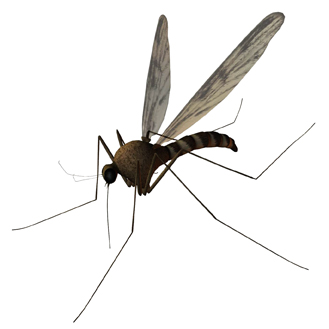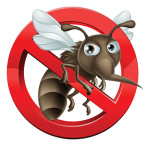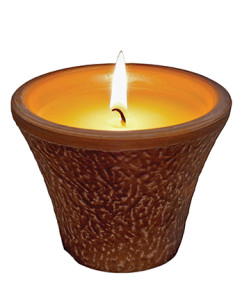Mosquitoes! Yikes!
Posted on July 2, 2015 by bob in Features
Some people are just plain unlucky in the mosquito bite department. While some species of mosquitoes, like Culex,  are attracted to the carbon dioxide all humans exhale, other species have a special attraction for certain people’s sweat and body odor—and that’s determined by a roll of the genetic dice. “Body odors are emitted because of bacteria that are digesting the oils on your skin,” says Joe Conlon, Technical Advisor to the American Mosquito Control Association and former Navy entomologist for 20 years. “Some odors are particularly attractive to mosquitoes; it’s genetically based.”
are attracted to the carbon dioxide all humans exhale, other species have a special attraction for certain people’s sweat and body odor—and that’s determined by a roll of the genetic dice. “Body odors are emitted because of bacteria that are digesting the oils on your skin,” says Joe Conlon, Technical Advisor to the American Mosquito Control Association and former Navy entomologist for 20 years. “Some odors are particularly attractive to mosquitoes; it’s genetically based.”
Another factor that affects your bite risk: skin color. “It tends to be worse for people with pale skin,” Conlon says. You also may have heard that people with O-positive blood are more susceptible to mosquito bites. Untrue, he says. “Once they land and start probing your skin, they won’t give a darn about your blood type.”
If you’re prone to mosquito bites, Conlon offers seven proven strategies for reducing your chances of being some mosquito’s next meal:
Tip #1: Stay inside at dawn and dusk
 After the ambient outdoor temperature reaches 55 degrees, mosquitoes are generally out. While some species (like the Asian Tiger mosquito, which is typically found in Texas, Florida, and bordering states) are outside biting day and night most other species feed around sun-up and sundown. “The preponderance tend to be more active an hour after dusk and an hour before dawn,” says Conlon. “But if you’re out in the woods, you’ll get chewed up even at midnight. The worst types breed in salt marshes—they will feed on you at any time.”
After the ambient outdoor temperature reaches 55 degrees, mosquitoes are generally out. While some species (like the Asian Tiger mosquito, which is typically found in Texas, Florida, and bordering states) are outside biting day and night most other species feed around sun-up and sundown. “The preponderance tend to be more active an hour after dusk and an hour before dawn,” says Conlon. “But if you’re out in the woods, you’ll get chewed up even at midnight. The worst types breed in salt marshes—they will feed on you at any time.”
Tip #2: Use an EPA-registered repellent
If you’re going to spend time outside during mosquito season, it’s best to arm-up properly with a product that’s labeled as an “EPA-registered repellent.” Registration seals are typically placed just above the ingredients on the bottle. “Being EPA registered says two things: 1) that the repellent is not harmful if used properly and 2) it guarantees at least two hours of protection,” says Conlon.
EPA.gov lists the active ingredients found in their registered, skin-applied repellents, which includes DEET, but also natural options, like concentrated catnip oil, oil of lemon eucalyptus, and naturally-derived synthetics, like picaridin, which resembles a compound in black pepper. “DEET products are still the gold standard,” says Conlon. “The new formulations don’t smell anymore or have a yucky feel. Make sure to get 25-30% concentration — anything over that is wasted — and you’ll have a solid 4 to 8 hours of protection.”
Tip #3: Drain all the water on your property
Mosquitoes need just five days to breed a new generation in standing water. So one of the best defenses you have is to eliminate all standing water from around your home. “I’ve seen mosquitos breeding in discarded soda bottle caps,” says Conlon. “Cups left out and tarpaulins thrown over pools are also enough for them to breed and multiply.” You may even want to talk to your neighbors about draining water from their property, since the air we breathe out can draw mosquitoes from up to 35 meters away, according to the AMCA.
Tip #4: Loose clothing helps
Wearing loose-fitting clothing that covers your limbs is key. “Mosquitoes can and will bite through tight-fitting clothing,” says Conlon. “If you do wear tight clothing, make sure it has a tight weave.” He also advises wearing light colors, because certain types of mosquitoes can see dark colors more easily.
Tip #5: Move less
Keep calm, and you’ll carry on with fewer bites. “People who are fidgety are more attractive to mosquitoes,” says Conlon. “Also, larger people are more attractive, which may be because they produce more carbon dioxide and more odors than smaller people.”
Myth #1: Growing certain plants can repel mosquitoes
You may have heard that plants including Lemon balm, Catnip, Marigolds, Basil, Lavender, and Geranium are Nature’s answer to mosquito control, but Conlon says no garden plant will keep mosquitoes away. “There are plants that contain oils that will repel for 10 minutes if you crush them, but the actual plants are not effective—there are too many environmental factors that affect repellency,” he says.
Myth #2: Candles can protect you
Citronella candles are a summer staple, found on back patios, front porches, and every outdoor living space in between. But beware: Citronella candles lose their repelling power if it’s windy out—ditto for clip-on diffuser repellents. “If you use them outside, make sure there’s no breeze—it will blow the concentration right off you,” says Conlon. “Clip-ons work in a closed space, but when you get out into the environment, wind and humidity lower their effectiveness.”
Myth #3: Natural repellents work just as well
Be wary of repellents featuring the following natural ingredients—Conlon had this to say about them:
— Garlic: Useless. Crushed garlic oils are only effective for about 20 minutes, and you’ll repel more humans than insects.
— Essential oil of cloves: Some repellant properties, but it only works at 15% concentration, which would burn a hole  in your clothes. It’s extremely acidic.
in your clothes. It’s extremely acidic.
— B1 supplements: Don’t work. They’ve been tested with dogs and humans to no success.
— Bananas: Some people say eating them repels mosquitoes, but the USDA says that’s nonsense.









